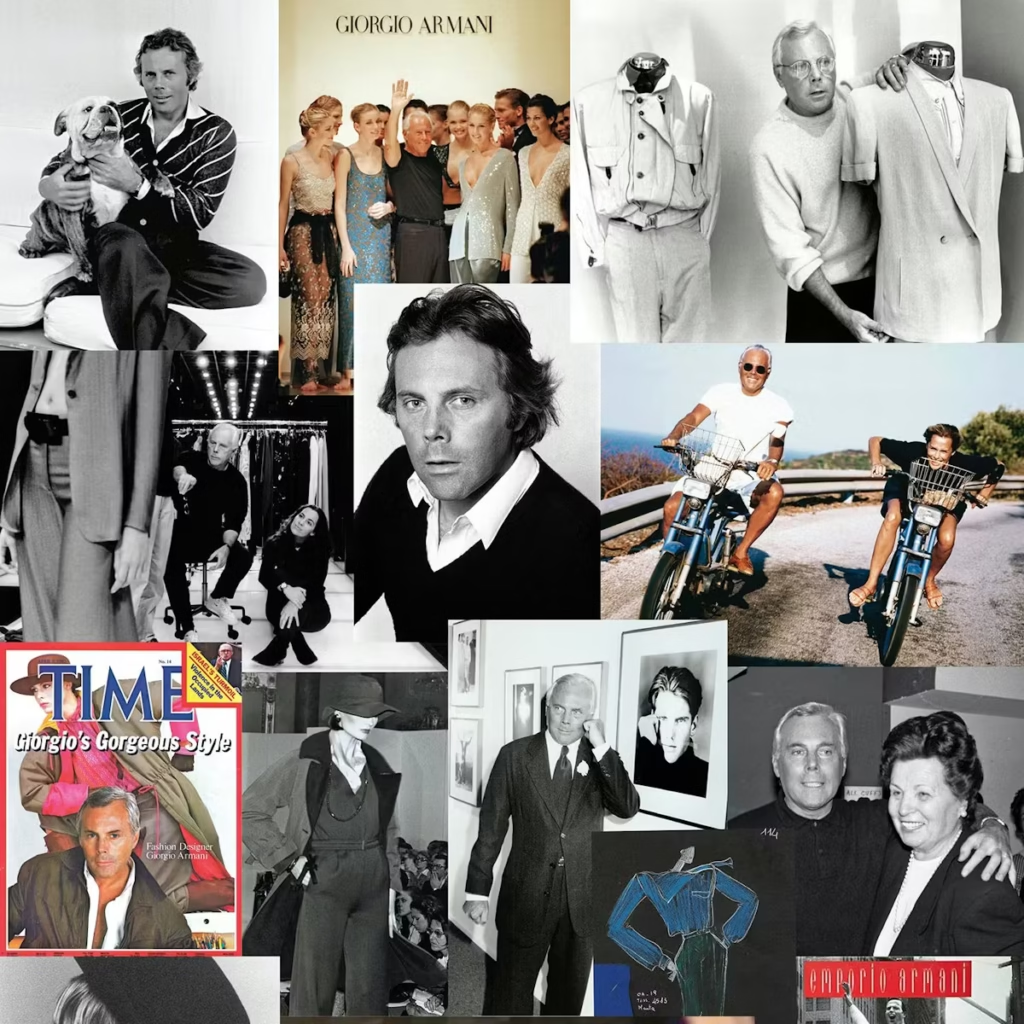Giorgio Armani, the Italian designer who taught the world that power could be soft and elegance could whisper instead of shout, has died at the age of 91. He passed peacefully in Milan on September 4, 2025, surrounded by loved ones.
Armani was one of the great auteurs of fashion, a man whose name meant empire, lifestyle, and an entire aesthetic school of thought.

Armani’s rise was fitting for a man obsessed with Hollywood. He launched his label in 1975, but it was Richard Gere in American Gigolo (1980) who turned him into a household name. The unstructured suits—silhouettes that replaced rigidity with fluidity changed menswear forever.
Where others built armor, Armani built movement. Where rivals shouted, he murmured. His designs made boardrooms less rigid, red carpets more refined, and power-dressing something you could actually breathe in.
By the mid-’80s, Armani was unstoppable. His tuxedos became standard issue for Hollywood’s leading men. His gowns glided down Oscar carpets. He expanded into fragrances, hotels, even furniture. Armani was selling a vision of how to live in high society: sophisticated, understated, international.
And unlike most of his peers, Armani never sold out. He kept his company private, guarding it with the same discipline that defined his tailoring. Independence was his superpower, even as conglomerates swallowed up almost everyone else.
Armani’s personal life was famously discreet. He never married, often describing his work as his great love. He avoided scandal and rarely strayed from his uniform of a midnight-blue T-shirt. But his impact rippled far beyond fashion week.

He dressed popes and Olympians, politicians and actors. He staged his runway shows like films. He understood, that fashion is theater—and that every client, whether celebrity or civilian, wanted to feel like the lead role.
The news sparked an immediate flood of tributes. Donatella Versace hailed him as “the master of restraint.” Actor Richard Gere said his clothes “taught men a new way to move.” Italy’s Prime Minister Giorgia Meloni called him “a national treasure.”
Milan, Armani’s lifelong stage, is preparing a public tribute at Armani/Teatro, the venue he made synonymous with modern Italian elegance. His funeral will be private, as per his wishes.
Armani groomed his niece Silvana Armani and trusted collaborator Leo Dell’Orco to take over the creative and corporate reins. The company will remain independent.

Giorgio Armani’s death is more than a loss to fashion. It’s the end of an era where designers could be philosophers, where restraint could define an empire. He was the quiet radical who made simplicity look like power, and power look effortless.
Few designers live to see their vision become universal. Armani did—and then some.

